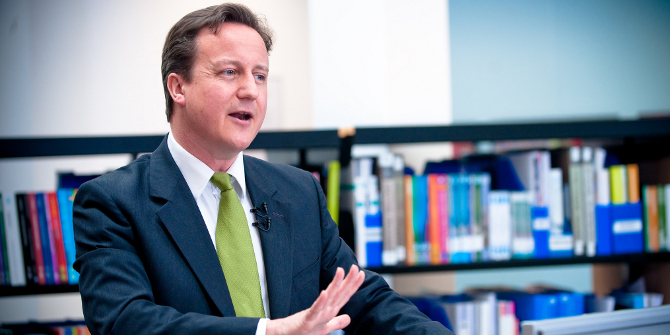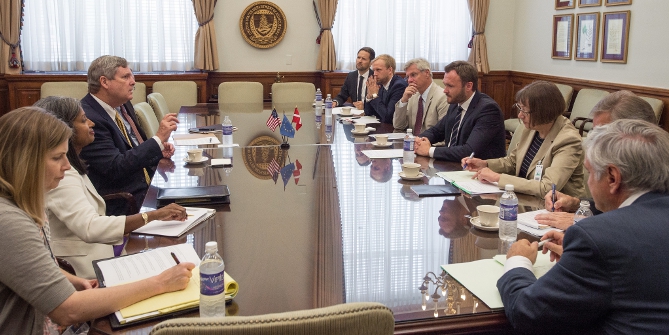 Paul Anand discusses some of the challenges facing labour markets in the light of COVID-19. He concludes that getting things right requires an ability on the part of the government to think more broadly and creatively about all the human outcomes involved.
Paul Anand discusses some of the challenges facing labour markets in the light of COVID-19. He concludes that getting things right requires an ability on the part of the government to think more broadly and creatively about all the human outcomes involved.
The UK government has started to unwind gradually the lockdown measures that have constrained production and consumption activities in most sectors of the economy; at the same time, it has extended for another three months its popular furlough scheme. The government costs of COVID-19 and responses to date are already estimated to be over £300bn, or a tenth of national income. Unlike individuals, governments can kick debt into long grass. More worrying is instead the fact the UK economy shrunk by 2% in the first quarter of 2020. That does not sound much but the lockdown was only in effect for the last week of that quarter, so a back of an envelope estimate is that the economy might lose half the value of economic activity over a five month period. At that rate, real average incomes would go back nearly a century, within a year.
Labour markets and livelihoods
There are several serious economic challenges facing government today. These include: what do with the prospect of a fifth of the workforce being unemployed for a long time; how to restore the confidence of workers and consumers in economic activities; what balance of tax increases and debt is used to pay for government expenses; and how can individuals and firms become productive to protect and grow standards of living. There are less obvious questions also about the kind of society and economy that we want to create in future and I shall return to that at the end.
Given the uncertainty about how this economic crisis should be navigated, a useful guide is to look at the wellbeing outcomes that the economy is supposed to generate, a perspective that economists have argued for a long time. From that perspective, the massive wave of unemployment that is unfolding underneath is perhaps most troubling, as it is the main mechanism by which households derive income as well as being an important way in which individuals make a valued contribution to society. Already 7.5 million jobs are protected by the temporary job retention scheme; if US experience is anything to go by, it is possible that many of these will go as the scheme unwinds.
How should government respond? Having listened to representations from employees and unions, in August the scheme will allow for part-time working and ask for contributions from employers. These changes could offset each other but are also likely to trigger the wave of business insolvencies that is inevitable. Younger and older workers and ethnic minorities may suffer disproportionately as a result, as will those in sectors where social distancing by consumers or workers is difficult. For those entering the labour market for the first time this year, there will be long-term health and unemployment effects if some way is not found to attach them to companies – time-limited and partly-paid internships might be a way of achieving this. Older workers forced to exit the labour market earlier than planned may take with them valuable skills and find their pension pots are smaller than expected. Formal and paid mentoring roles established by firms might be a way to hold onto these skills and prevent such workers becoming excluded but in any case, some novel thinking is required.
Looking to the longer term, an obvious move might be to find that some infrastructure projects help with employment and productivity at the same time. The process of shifting to a low carbon economy is well recognised as a long-term need though it is likely plans would have to accelerate substantially for there to be any significant net contribution to jobs. Similarly, there are some well mismatches in the labour market which could usefully be addressed. There are, for example, recognised shortages of IT and STEM skills and so policies to encourage workers into those areas could be valuable. Likewise, effective apprenticeship pathways into work could support manufacturing while addressing the problems of some types of graduates not being able to obtain graduate work.
Policy processes and blindspots
Warren Buffet once said that he preferred company managers who looked at the playing field rather than the scoreboard. That point may apply when policymakers address the current pandemic. By focusing on the quality of people’s lives, it is possible to get a handle on the economic issues that matter most and how they might evolve over time. Furthermore, by drawing on experience elsewhere, countries may be able to fill their inevitable blindspots. The UK’s job retention scheme drew on financial crisis experience in Germany, which consulted with social scientists and humanities scholars and has one of the lower COVID-19 death rates in Europe.
Getting things right in a financial crisis caused by a global pandemic requires an ability to think broadly and creatively and be genuinely concerned about all the human outcomes involved. Perhaps if the government added an economics and social science expertise to its currently medical-focused committees of advisors, this would help it address the wide array of economic and social problems that could be limited or prevented if we act now. These challenges are likely to be with us in some form for decades, but societies have also an opportunity to reflect on the nature and type of economic progress that we want. Economic growth in the UK for the next decade may well be rather limited so perhaps it is time to focus more systematically on other ways in which quality of life can be enhanced.
____________________
About the Author
 Paul Anand is a Professor of Economics at the Open University and Research Associate at Oxford University and London School of Economics.
Paul Anand is a Professor of Economics at the Open University and Research Associate at Oxford University and London School of Economics.
All articles posted on this blog give the views of the author(s), and not the position of LSE British Politics and Policy, nor of the London School of Economics and Political Science. Featured image credit: by Nick Bolton on Unsplash.







